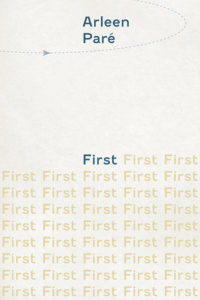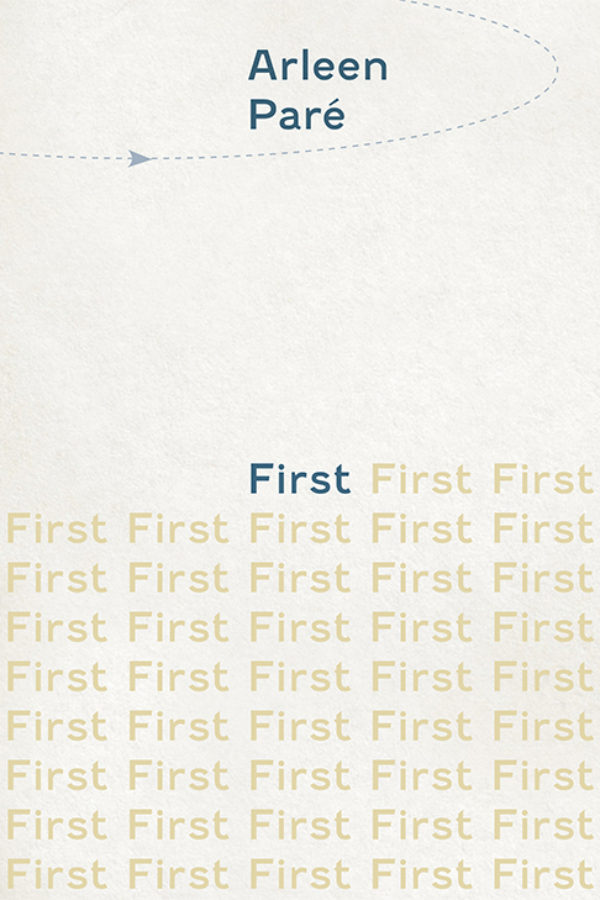By Catherine Owen
First
by Arleen Paré
Brick Books (2020)
The topic of female friendships in literature: enduring, formative, is unfortunately uncommon. Often dismissed as a bond of fripperies by a patriarchal society, close relationships between women that began in childhood are essential for the establishment of trust, even when ruptured, as Arleen Paré’s was with her first compatriot, Pat Hurdle, by a breach of time.
Neighbourhoods and their inhabitants have long been a basis for Pare’s poetics (her 2020 book, Earle Street, was grounded in her Victoria community) and with First, Paré literally circles back to Green Circle, Dorval, where she spent her youth, an era marked by a taciturn father, the distinctiveness and death of Pat’s mother, and a gathering sense of difference in a suburban world of tans, smoking, church, Bridge, heterosexuality, and curly fries. First also extrapolates from initial human ties to the Big Bang of the universe through the explorations of the peppy girl detective, Nancy Drew, intent on ineffable solutions though she’s merely the crass creation of a syndicate.
At the service of the memories and the quest are an array of forms and rhythms. Prose pieces like “It Begins in a Corridor” (a space where coal, a coal store, is a keen continuous/ olfactory factor), numerical questions (1. In the beginning? 2. Was there?), nursery rhyme-style chunks (tick tick/tick tock … with zero hour, second hand, no clock) and lacuna- spaced lyrics, one of the most potent being “Daisy Chain II” (primula chiffon lemon curd/which is how I know about love). It takes a tremendous effort of language, form, and crafted emotion to engage a reader in the details of one’s intimate life and Paré doesn’t always achieve this magic trick. There are flattened ends, banal asides, and tired idioms (peas in a pod, robin’s egg blue) at times, but the sequences eventually concoct a spell of active nostalgia that peaks in the elegies for Pat’s mother (sometimes it seems as if she and not Pat is the true textual pivot) and her direct addresses to Nancy Drew who’s been “hired to solve a mystery” that “involves the cosmos.” And those vibrant evocations of place in “Cosmologies” where “the stars were a comfort their shine so real around us/wonder and roof” while, vaster, “The American Wilderness Act” asks poignantly, “what is not worth preserving … which one of us is also not a form of/wilderness.” Starting each of the seven sections with a quotation from one poem by Len Anderson is a fascinating approach, though the trajectory (and its temporal recoilings) might have been strengthened by a reduction to four or five entrees. The conclusion is triumphant, however, despite the knowledge of certain loss, as Paré reunites with Pat within cancer’s continued hauntings and, in a unique collaboration with Nancy Drew, “memory becomes its own ghost orchard.” Dylan Thomas wrote “after the first death there is no other” and Arleen Paré reminds us that “a first friend is forever,” a wisdom that First honours as one only can in art.
Catherine Owen is the author of 15 collections of poetry and prose. Her latest books are Riven (ECW 2020) and the essay collection Locations of Grief (Wolsak and Wynn 2020). She also writes reviews for Marrow Reviews at WordPress.com, hosts a poetry podcast called Ms. Lyric’s Poetry Outlaws, and runs the online magazine The The.


